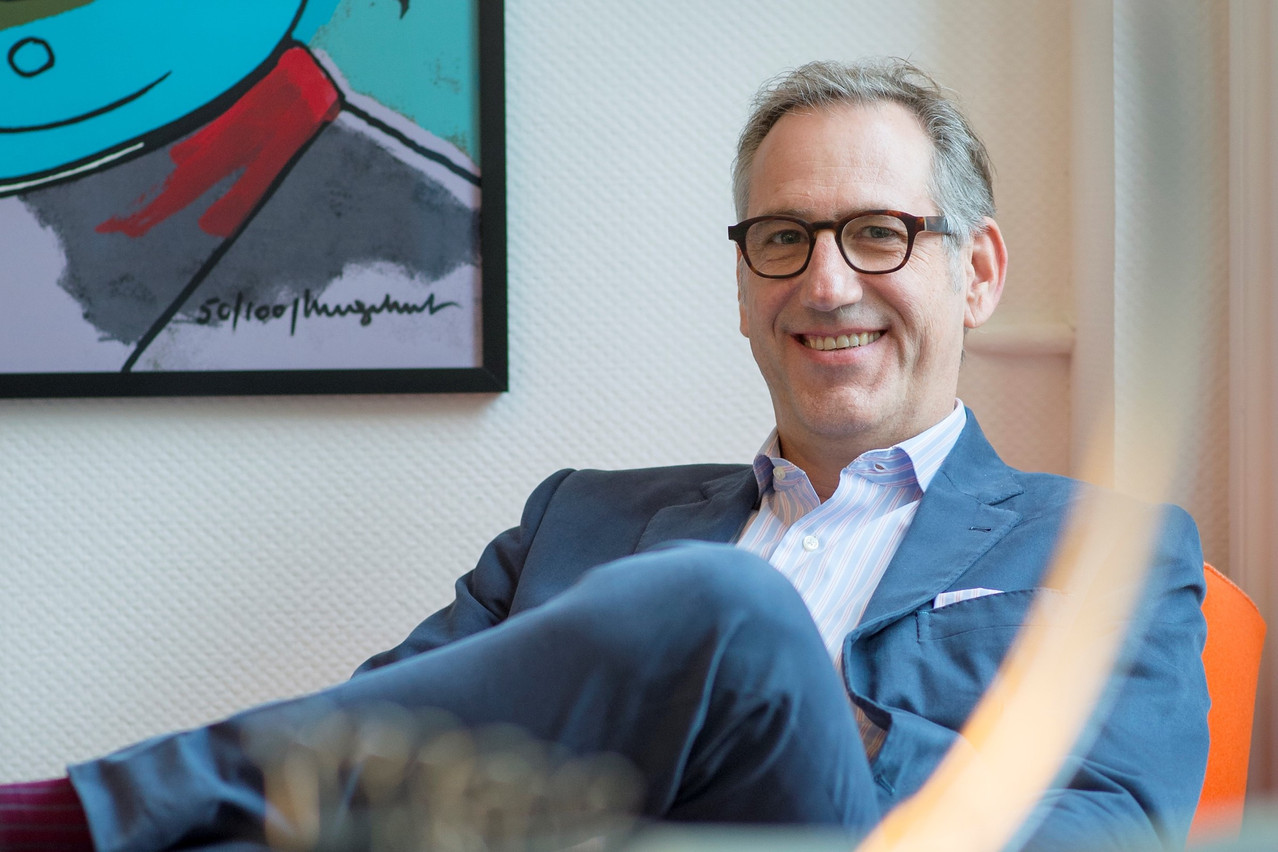Founded in 2000 in Luxembourg and opening another office in Tel Aviv in 2010--and now with presences in Berlin, Paris, Barcelona and London as well--Mangrove Capital Partners has €1bn in assets under management and was an early investor in the likes of Skype and Wix. It invests in technology and follows three megatrends: health technologies, education technologies and tools that help small businesses become more efficient.
What do you look for in a portfolio company?
“A technology or a product,” says Hans-Jürgen Schmitz, Mangrove’s managing partner. In other words, a startup’s idea doesn’t need to have a use-case or a defined set of customers for the firm to potentially take interest. “[It could be] something that is so fundamental,” he explains, “that you’d have to take a crystal ball… and say, ten years out, there are a lot of drivers that could make this technology turn into relevant applications.”
One such technology is the one being developed by brain.spaces, one of Mangrove’s portfolio companies. Its entrepreneurs are seeking to build a database that would, ultimately, make a brain readable. Future applications could be in the health/safety sphere (e.g. monitoring a pilot’s present state of mind) but, Schmitz points out, the core underlying technology doesn’t yet exist. Hence, the investment in that technology.
But Mangrove also looks at startups whose products do already have use-cases and a foreseen user type. Here, Schmitz defines two key criteria. First, do potential customers immediately get it? If the reaction is merely “hm, OK, yes, I could see [myself using] this” then for him that’s already a red flag. “We’re looking for something that creates a ‘wow’ effect.” The second criterion is whether the product fits into one of the megatrends defined by the company, i.e. a trend that won’t be reversed in the near future.
Luxembourg-based freight management company Shipsta is an example of this type from Mangrove’s portfolio. Its team has the industry experience to know what kind of tool can cut through problems that shipping companies face, says Schmitz, and they have built it.
Besides the technology or product, the other fundamental element is the team, adds the managing partner. He looks for industry expertise combined with prior experience in building/scaling a company: “Many times, in our experience, it’s not the product itself that failed--or the reason why the business failed--it really is the team around it.” Fundraising skills are also important: “When people come to pitch us, we want to get the sense that they can convince not only us, but also other investors in the future.”
What are the biggest challenges and opportunities for your firm this year?
“Well, 2023 is a year that, at this moment in time, is difficult to read,” says the managing partner in response to this question. He contextualises this by discussing the “breakout years” of 2020 and 2021, when the amounts of money invested were “outright crazy” and which fed into a 2022 marked by a major slowdown in growth, falling stock market values and erosion of confidence in public markets. Such a confidence loss trickles down, says Schmitz, all the way to the VC business.
A silver lining to the recent turbulence, for Schmitz, is the “big cleansing wave” of mass layoffs across the tech industry. “Everybody realised that they had hired way too many people without any discretion during covid,” he says. Investors have told companies to get back to profitable growth, rather than growth at all costs, which Schmitz says is a good thing.
“We’ve gone from exuberance in capital abundance to capital scarcity, [which] is equally unhealthy. We’ll have to see where we find a middle ground.” The challenge for VC companies is thus finding the way through that middle ground, as investors are showing caution. The question will be when and to what extent confidence in the markets is restored.
There is a possibility it will go quickly, he adds. “Since everybody is holding back money, there is a lot of [it] sitting on the sidelines looking to be invested.” He isn’t sure this is an opportunity, per se, but in his experience a wave of good news can restore confidence and reopen the floodgates of investment. “[Although] hopefully not the same insane (sometimes) portions that we saw in 2020 and 2021.”
What would you want the general public to know about VC?
“I think, more than ever, the general public sees venture capitalists as a complete black box,” says Schmitz. “[But VC] is the necessary ingredient of fuel to create tools that people in their everyday life will use and come to appreciate.”
As Luxembourg-based examples he cites Salonkee, an online reservation site for beauty services, or Mangrove portfolio company Job Today, a mobile-based platform that matches employers and job-seekers. “These are very tangible tools that are being developed only because venture capital is available.”
“Banks… will not invest in such risky endeavours.”
Three exciting portfolio companies?
From the 40 or so in Mangrove’s portfolio, Schmitz selects three to highlight:
—K-Health (US/Israel), which uses AI platforms to bring basic healthcare to people who otherwise wouldn’t have it
—The Bank of London (UK), the second clearing bank to be authorised in the UK in the last 250 years, and which uses a blockchain-based transaction platform to do clearing transactions more efficiently
—Edgify (UK/Israel), an AI tool embedded in a camera that can determine, in supermarket self-checkout stalls, items without barcodes
